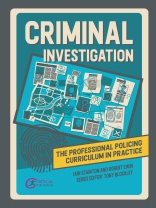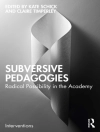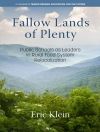Criminal investigation is an essential topic, running through the new national policing curriculum from volume crime to serious organised criminality. This book provides accessible and comprehensive coverage, with case studies and examples to embed understanding, clear links between theory and practice, and a range of critical thinking and review activities. It examines investigation from inception to conclusion, detailing methods, explaining legal requirements and reflecting on past investigations. The contributory roles of specialists and forensic support are examined to provide an inclusive overview of the whole investigative process.
The Professional Policing Curriculum in Practice is a new series of books that match the requirements of the new pre-join policing qualifications. The texts reflect modern policing, are up-to-date and relevant, and grounded in practice. They reflect the challenges faced by new students, linking theory to real-life operational practice, while addressing critical thinking and other academic skills needed for degree-level study.
Jadual kandungan
Chapter 1: Introduction to criminal investigation process
Chapter 2: Key principles of criminal investigation
Chapter 3: Investigative practice
Chapter 4: Witness and victim management
Chapter 5: Investigative interviewing
Chapter 6: Specialist support
Chapter 7: Covert methods
Chapter 8: Complex cases
Chapter 9: Measuring investigative success
Mengenai Pengarang
Tony Blockley has served within policing for over 30 years, gaining extensive knowledge and understanding of policing organisation and practice. On retirement he had attained the rank of Chief Superintendent with the position of Head of Crime, responsible for leading 500+ multi-disciplinary staff within a complex and critical department servicing public protection, major and serious crime, serious and organised crime, terrorism, financial crime, fraud and forensic services.
As the lead for policing at Leeds Trinity University he is responsible for co-ordinating policing higher education, including developing programmes and enhancing current provision in line with the Police Education Qualification Framework (PEQF) while also supporting the College of Policing in the development of programmes.
He combines an extensive policing career with an understanding of the national curriculum, the requirements of the academic standards and the entry routes to policing, giving him a unique perspective and the necessary credibility to support his role as Editor of Critical Publishing’s new policing series.












